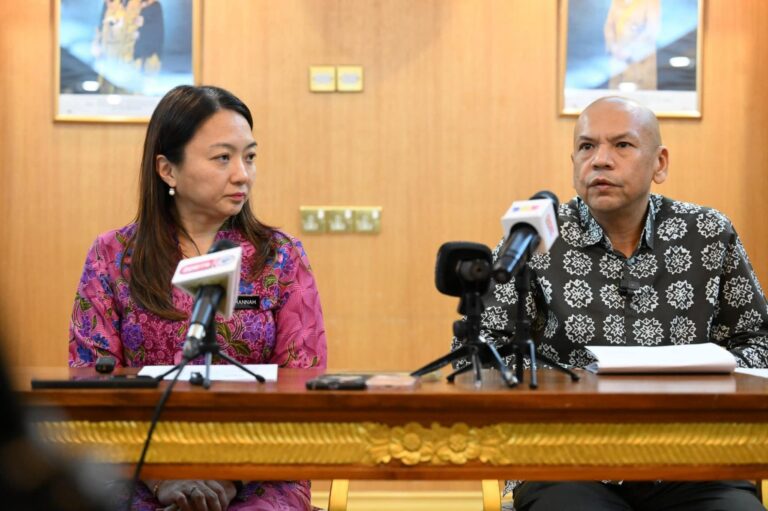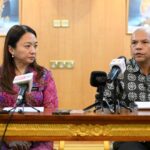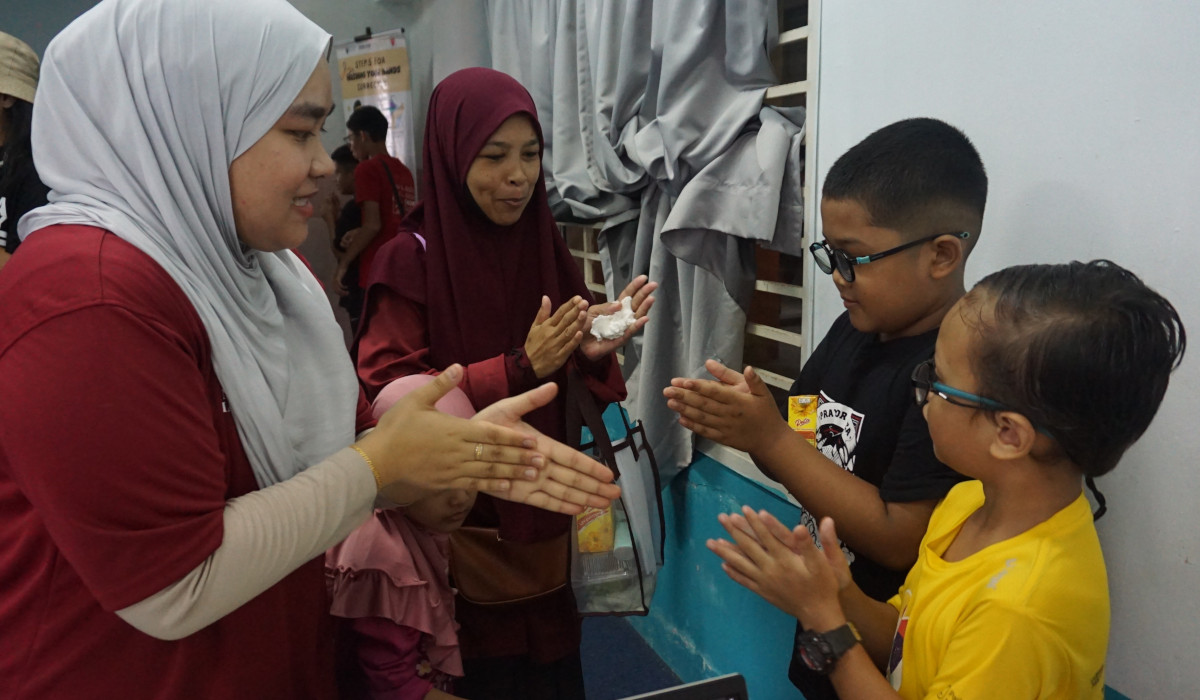
By Norhidayu Sahimin, Nabila Abu Bakar
In a meaningful step towards reducing health disparities in urban low-income communities, the Tropical Infectious Diseases Research and Education Centre (TIDREC), Universiti Malaya, in collaboration with the Malaysian Society of Parasitology and Tropical Medicine (MSPTM), successfully conducted the HeLP-PPR Outreach Program at two Projek Perumahan Rakyat (PPR) locations: PPR Kg. Baru HICOM, Shah Alam on 18 May 2025, and PPR Lembah Subang 1, Petaling Jaya on 25 May 2025. Funded by the Poverty Research Lab UAC 2.0 under the Ungku Aziz Centre for Development Studies (UAC), Universiti Malaya, the initiative was designed to bring health literacy directly to underserved communities through practical, engaging, and approachable educational methods.
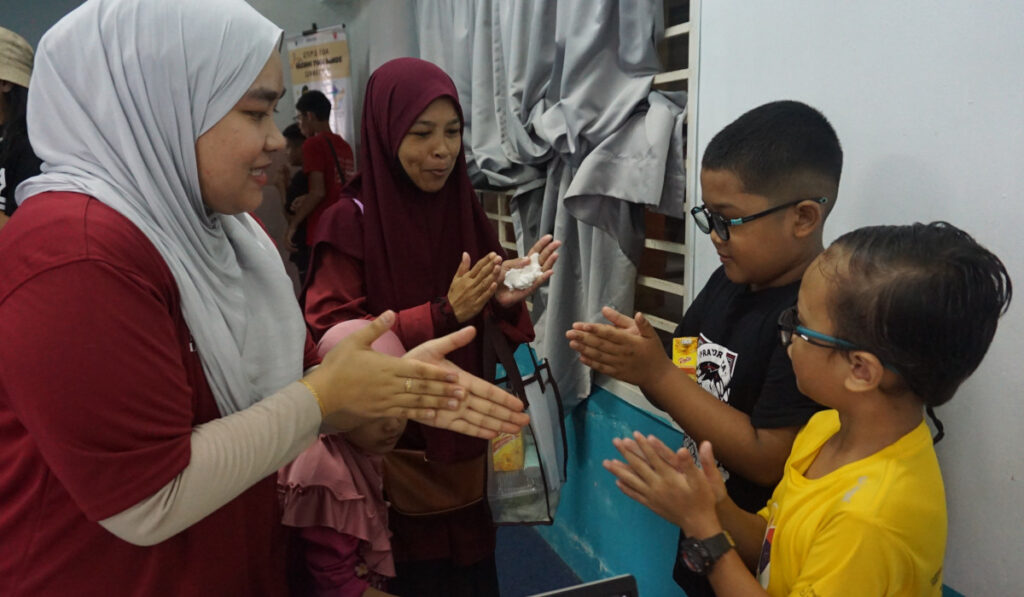
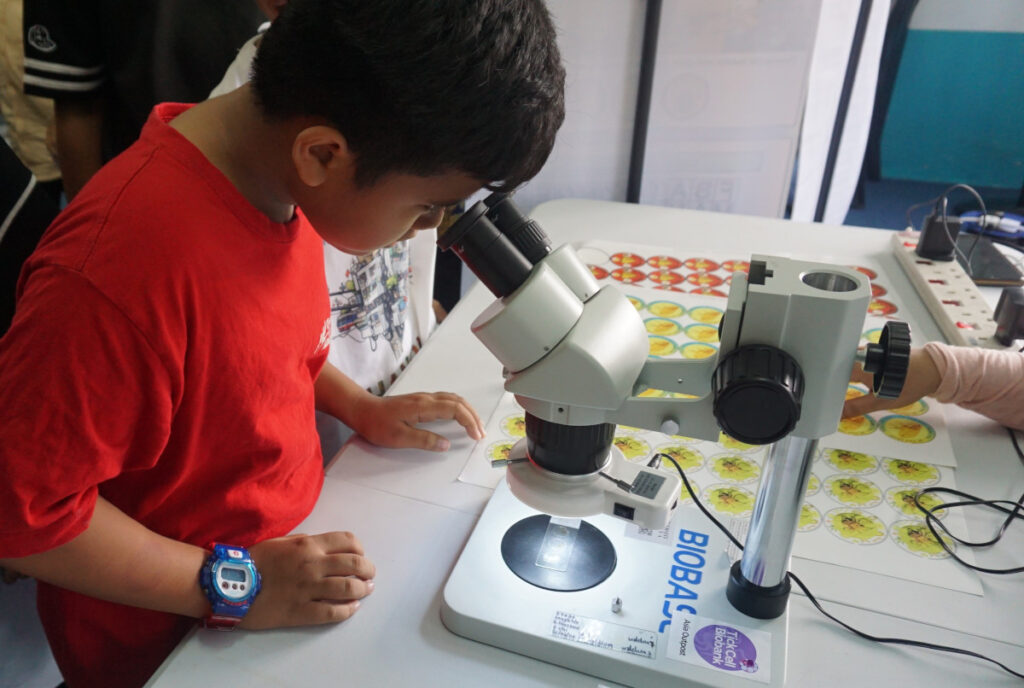
The half-day event adopted a booth-based approach, transforming traditional health talks into an interactive community experience. Each station addressed key public health issues relevant to the PPR residents, including COVID-19 and influenza, dengue fever, vector-borne diseases, and food- and water-borne illnesses such as leptospirosis.
The event was a perfect blend of fun and knowledge, particularly during the hands-on demonstration showing the correct technique for handwashing. This topic is especially relevant in a densely populated urban community, where infections can easily spread due to improper handwashing practices. The program emphasised the importance of recognising early warning signs such as fever, headaches, and flu-like discomfort, understanding the differences between infections, and knowing when to seek medical attention. These infections often appear very similar in the early stages, as a simple fever could easily be mistaken for another illness. By helping the community, this program empowers the residents with knowledge to respond quickly and appropriately when illness strikes.
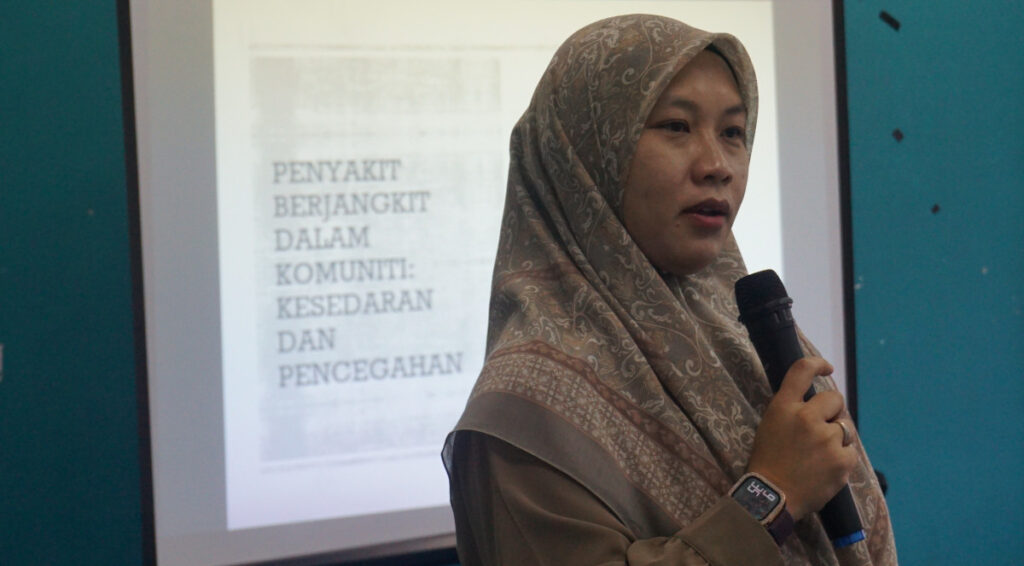
What set the HeLP-PPR program apart was its welcoming, relaxed, and fun approach. It was deliberately steered away from the formal or perhaps often intimidating style of conventional health education. By creating a friendly environment with approachable facilitators, games, quizzes, and hands-on learning, the program encouraged residents of all ages to actively participate, ask questions, and take ownership of their health. Feedback from participants reflected this positive experience, with many expressing how enjoyable and enlightening the sessions were.
Beyond raising awareness, the initiative also addressed the broader connection between health and poverty. In low-income settings, poor health can rapidly lead to economic instability. Missed diagnoses and delayed treatments often result in prolonged illness, job loss, and financial hardship. On the other hand, with early recognition of symptoms, prompt treatment, and proper preventive practices, individuals can avoid serious illness, remain productive, and reduce the burden on healthcare services. Health is deeply tied to a family’s ability to work and earn a stable income. In the noise of everyday life, where most residents are on labour jobs, the program has hopefully prepared them to be more cognizant of their health and to stay healthy, which is pivotal for their economic resilience. In the long run, this will reduce long-term costs for both families and the government.
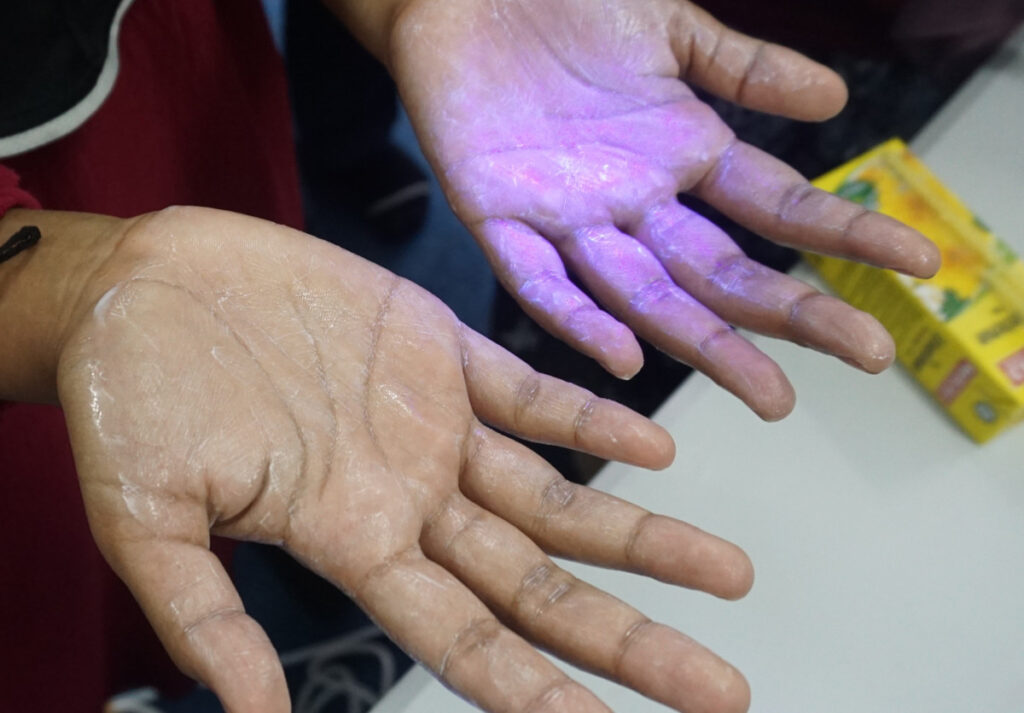
The turnout at both events was encouraging, with approximately 160 residents participating, including children, adults, and the elderly. The overwhelmingly positive feedback the team received affirmed the program’s relevance and impact. Many participants expressed hope for similar programs to be conducted again in the future, highlighting the need for continued, accessible health education in community settings.
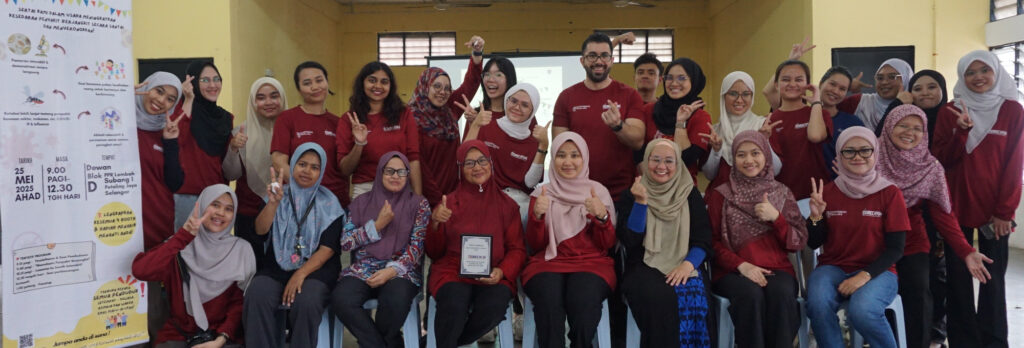
With the success of the HeLP-PPR Outreach Program, TIDREC hopes to expand this model to more PPR communities across the Klang Valley and beyond. Public health truly begins within the community. When people are equipped with the right knowledge, they not only prevent illness but also actively protect their future.




